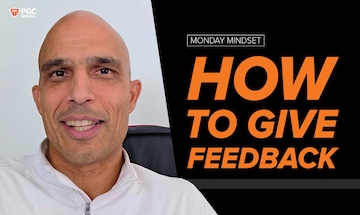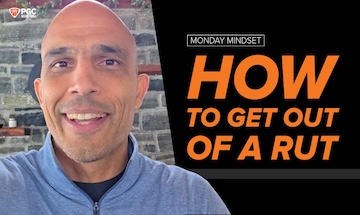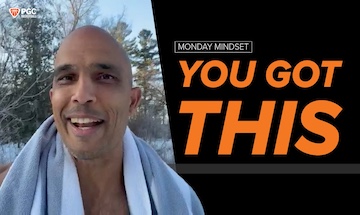Being a Championship STUDENT Athlete
ANYONE WHO SPENDS MANY HOURS A DAY IN SCHOOL OUGHT TO FIND A WAY TO ENJOY THAT TIME.
Being a student is a lot like being an athlete. To be the real thing you emulate the stars. Too few, however, are making any effort to emulate outstanding scholars. Plus, we don’t see many outstanding scholars on TV on Saturday afternoons…or do we?
In a sense, nearly everyone we ever see on TV is a scholar of some type, someone who has made it through the ranks, graduated from high school, usually from college, and nearly always from some schools of hard knocks.
A lot of people want to be on TV so there is fierce competition, just like in sports. A commentator or newscaster has passed by a lot of others who aspired to that position. The same is true usually for the people being interviewed. Politicians, entertainers, business leaders.
What do you notice when you see people on TV?
In general they appear to be organized, articulate, purposeful. Their appearance reflects a certain self-pride. If they are holding some papers, books, or a briefcase, there is often further evidence of purpose and pride.
How many students have you seen toss books in lockers, get papers scrunched up and torn, turn in homework assignments that look hastily thrown together? These aren’t terrible crimes but they don’t imitate what top scholars do. Scholars are proud of their efforts, just like athletes. That means their books and papers are going to receive star treatment. They strive for excellence in a library or meeting room just like athletes are doing on a field.
If you don’t currently have a sense of what it’s like to be a real student, try a few experiments. Put new covers on your books and put them on neatly (or get someone else to do it.) so they look good. Then keep them clean and neatly stacked wherever they are. Get a separate folder or large envelope for your papers and assignments so they have little chance of getting torn or dirty. Keep a calendar that shows clearly when tests are coming up or papers are due.
Go to each class with the idea of listening carefully to what’s going on. If the material is interesting, rejoice! But if it’s boring, listen carefully and ask, “How can anyone find this stuff interesting?” (Some people do find it interesting; it’s just a matter of finding out why.)
In each of your classes make sure you have an overview. That means make sure you understand why you have that class and what the material covers, so that each day the work for that day is placed in a larger context.
Most important of all, try just walking around like a real student. Walk into class like someone who is eager to learn—even if you aren’t—and take some notes as though you want to be able to recall that information later—even if you don’t. Sit and look the teacher in the eye and pretend, if necessary, that the things in your book are of great interest.
It’s not necessary to do all this as a big lie. Doing it as an act will be fine. Do it as an experiment. Just try it. Tell your friends, if that will help, and make a joke out of it. But try it.
Acting like a real student makes it easier to be a real student. (Just as thinking and acting like a champion makes it easier to become a champion.) And regardless of what some of your friends may think, anyone who spends many hours a day in school ought to find a way to enjoy that time and make the most of it.
For those of you who already are conscientious in school, don’t pat yourself on the back. See if you can raise yourself up a level the way good athletes do when attempting to be outstanding. Listen better, add more to the experience, take better or more memorable notes. Define what the ideal student would be and strive for that as an experiment. And see how you like it.
There is a definite, undeniably good feeling that comes from the pursuit of excellence in whatever you do. In school, we learn all sorts of non-excellent behaviors along the way because most of us want to get in our daily quota of talking with friends, messing around, telling and laughing at jokes, etc. There’s nothing unusual about this. However, sometime, you need to make a break from all of these extraneous behaviors and start focusing your efforts.
Separate your student time from your friend-making and joke-telling time. Sure, you can tell a joke and laugh during a class. Everyone enjoys these things from time to time. But just make sure you don’t joke and laugh and distract yourself on a regular basis.
Some students get all the way through elementary school maintaining the notion that one of their primary goals is to disrupt a teacher, get in as many jokes as possible, talk to friends as much as possible, and stay “off task” as long as possible. This probably isn’t your problem. But would you say you are typically in a classroom experimenting with excellence? Nearly every student, like every athlete, can increase his level of participation, his effort, his enthusiasm, his leadership. Why not you?
The better you are at a sport or a school subject, the more you like it and the more you are able to work at it diligently and effectively. If there’s a subject you hate, get better at it and keep pretending for awhile. Try acting as if you like it for just a couple of weeks. You may truly be astonished at what happens. The habit of excellence can become enjoyably addictive.
—Excerpted from the book, “Think Like a Champion”
Related Articles
Monday Mindset: How to Give Feedback
Tell the truth, but say it with grace. Feedback works best when it’s rooted in care, not criticism.
Monday Mindset: How to Get out of a Rut
A new setting can reset your energy, restore your confidence, and reignite your passion. That’s your Monday Mindset: when you’re in a rut, change your environment and change your state.
Monday Mindset: You Got This
Every morning starts with one hard thing, and one simple reminder: You got this. Whatever challenge is in front of you, speak confidence into it. Push forward. Trust yourself.
About PGC
PGC Basketball provides intense, no-nonsense basketball training for players and coaches. Our basketball camps are designed to teach players of all positions to play smart basketball, be coaches on the court, and be leaders in practices, games and in everyday life.
We combine our unique PGC culture with a variety of teaching methods and learning environments to maximize the learning potential of those that attend our sessions. In addition to spending 6-7 hours on the court each day, lessons will be reinforced through classroom sessions and video analysis.
Our goal at PGC is to empower you with the tools to fulfill your basketball dreams, while also assisting you in experiencing the joy of the journey.
To learn more about PGC Basketball, including additional basketball training tips and videos, visit our YouTube Channel or find us on Facebook, Instagram, and Twitter.















Share This Post